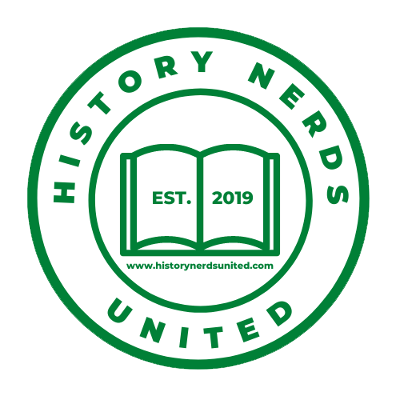It still amazes me how generous history authors are with their time. I read CODE NAME: LISE (my review is here) a few months ago and absolutely loved it. The book is about Odette Sansom (or Hallowes or Churchill) who was World War II’s most highly decorated spy. Anything more starts to verge on spoilers, so I won’t say any more. (FYI: For non-history nerds, SOE is the Special Operations Executive. Think spies.)
Since I am wonderfully free from shame, I decided to reach out to Larry Loftis and ask him some questions I had about the book and a few other questions about being an author. Larry got right back to me (which is amazing because he is really busy, just check out his bio) and was happy to answer them. Enjoy our (email) interview below and then go buy Larry’s books!
(Note: Larry says he doesn’t watch TV. I don’t know, sounds like a Real Housewives addict to me but I digress…)
(HNU) We definitely need a movie about Odette, right? The last one about her was in 1950 as far as I can see.
(LL) That’s correct. We’ve actually been contacted by five or six groups from Hollywood, with three offers. We’re waiting for the right person to do it, though (Steven Spielberg, if you’re out there….).
(HNU) Odette can often be characterized in different ways. Some have portrayed her as a bored housewife who wanted to have an adventure and get away from her husband. Your book shows her as deeply conflicted between patriotism and her children. What do you think about her characterization as someone just looking for a change?
(LL) Indeed, many have raised that question, and people are often shocked to hear that Odette left three young children at home to go on a very dangerous mission (the fatality rate of SOE couriers was 42%, second only to Bomber Command’s 45%). No one can read Odette’s heart, of course, but it very well may have been a combination of both.
(HNU) Additionally, George Starr, another SOE agent described her as, “a dreadful lady,” and called her out for seductive behavior. Her affair with Churchill would suggest there may be some truth to that. However, do you think it may be more due to her stubbornness and determination to get the job done? (I personally feel her withstanding later torture says more about her iron will than anything else.)
(LL) Odette had an intense personality, no doubt. After meeting her, Peter described her as an “angry gazelle.” But he and Arnaud (their radio operator) loved working with her. But a clarification is in order: there is not a shred of evidence in any primary source that suggests she had “seductive behavior,” or that she had an affair with Peter during the war. I address this in one of the end notes, I believe.
(HNU) The SOE has a somewhat muddled legacy. While dealing with highly complex challenges, there was also massive lapses in judgment and security. Looking at the full scale of SOE operations and numerous successes/failures, do you think it should be seen as a successful wartime organization? Or does the fact the Allies won the war cover up the myriad mistakes they made?
(LL) Every operation incurs mistakes, and any operation in any war by any country would provide ample evidence of this. Absolutely, SOE had their share of mistakes, the Dutch (Operation North Pole) fiasco being at the top of the list (where the Abwehr’s Hermann Giskes turned an SOE radio and some 50 SOE agents were dropped into waiting German arms), but to suggest that the organization and its operations as a whole were unsuccessful is grossly inaccurate. On the whole, the SOE was very successful, and was of tremendous help in Operations Overlord (D-Day) and Anvil (later, Dragoon, the invasion of southern France).
(HNU) It seems like you have to love researching to be an author. Do you agree?
(LL) You have to love research if you want to provide a quality nonfiction book, and the best way to see how thorough an author has been is to look at the end notes and bibliography. With a novel it’s not required since all of it can be untrue. That said, the better fiction writers do some research so that their story sounds believable.
(HNU) What is the best part of the entire writing process for you?
(LL) Turning in the manuscript. 🙂 No, the really fun part is finding nuggets of gold during research. In all three of my books (Into the Lion’s Mouth, CODE NAME: LISE, and The Princess Spy, which hits Feb. 9, 2021) I have found the most incredible things in the archives (US or UK). For example, with ILM, I held in my hands the very document Popov gave to the FBI on August 18, 1941 (his translated German questionnaire to investigate the defenses at Pearl Harbor), which Hoover held in his hands the following day. With LISE, I had tremendous joy finding on GoogleMaps the exact spots of landings or drops in Bassillac and Mt. Semnoz, France, both of which look exactly like they did in 1943. And with The Princess Spy, I discovered a murder (addressed in a memo in the OSS files) that has been lost in history and was quite incredible.
(HNU) Is there anything you wish you knew ahead of time before you started your writing career?
(LL) Yes, the time involved in everything is much longer than you expect. It took me longer to find an agent, for example, than it did to write my first book. It took my publisher 16 months to publish my first book after I turned in the manuscript. And an author’s “advance” is typically spread over four years.
(HNU) How do you balance the various jobs you do? One at a time, little bit of everything all at once?
(LL) With nonfiction, you really have to spend at least six months doing research before you even think about writing. When I wrote Into the Lion’s Mouth, I spent a year doing full-time research, and then another six months spending half the day in research, half in writing, followed by six months of pure writing.
The killer with what I do is the end notes. During my pure writing time, I might spend an entire day working on one end note (which doesn’t count toward your contract “word count” length). And invariably, that end note will require additional research, or spot checking.
(HNU) What are your favorite guilty pleasure TV shows while on lockdown?
(LL) I don’t watch TV, so the lockdown is no different for me from any other day; I read instead of watching TV. And my pleasure reading right now is The Winter Fortress, the excellent WWII book by Neal Bascomb on the Vemork (Hitler’s heavy water production facility) attack.


Leave a Reply
You must be logged in to post a comment.